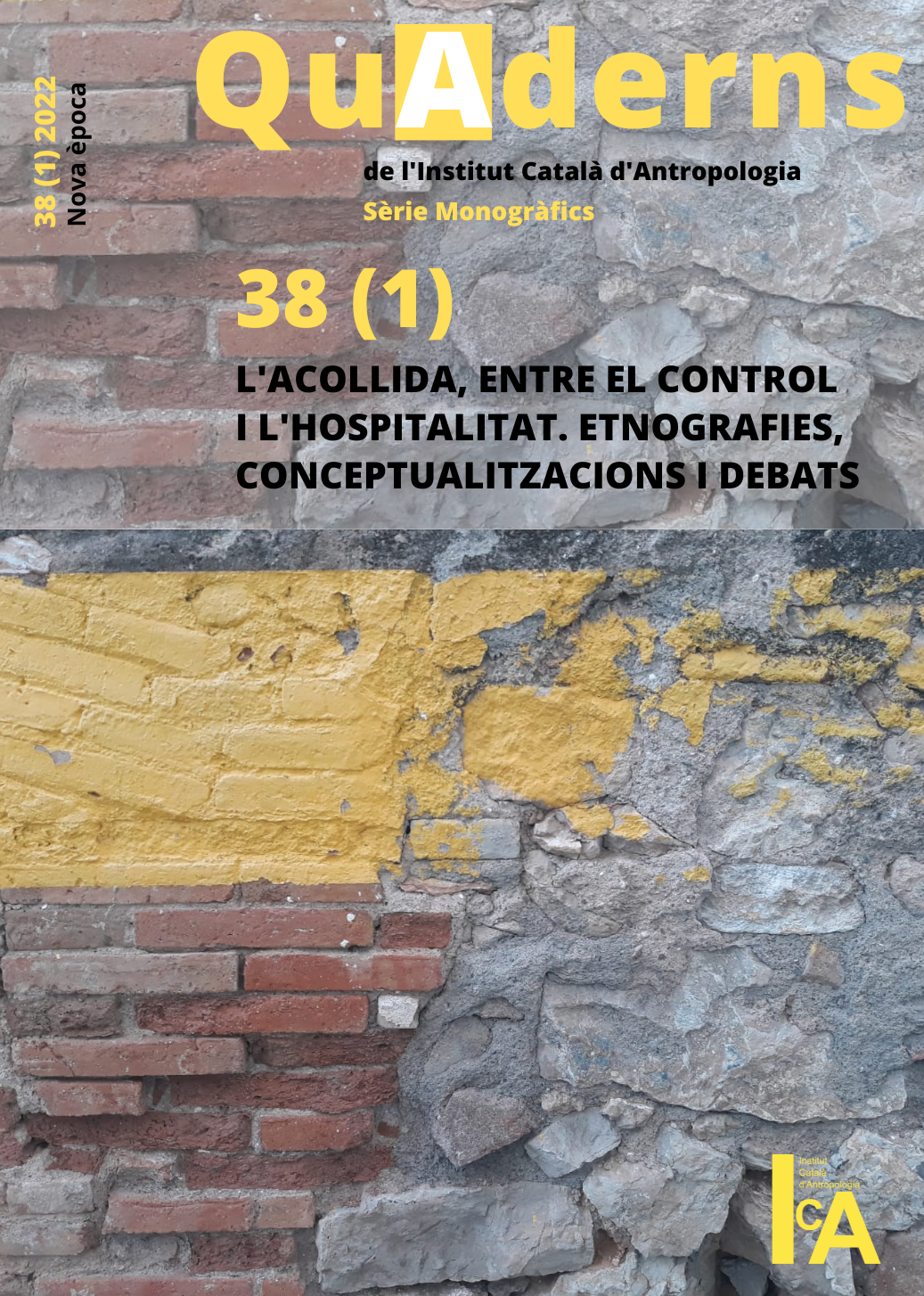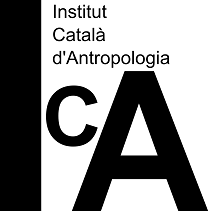Protection against what? The notion of ‘acollida’ in the Spanish system of international (un)protection
DOI:
https://doi.org/10.56247/qua.393Keywords:
acollida, reception, asylum, NGOs, reception workersAbstract
The concept of “acollida” has been a contested one. While at the institutional level it has been understood as a legal obligation arising from the need for protection presumed to refugees, in other contexts it may be understood as a moral imperative or as a form of political action and resistance against the global migration control apparatus. While reception policies have become one of the main prerogatives of the right to asylum in the European Union the reality on the ground shows a very different picture. Asylum seekers and refugees face situations of severe vulnerability in most member states, including homelessness, destitution and serious violations of their fundamental rights. In Spain, this idea of “acollida” is closely linked to the state’s reception system, as is the lack of protection for asylum seekers and refugees. This article explores how the concept of “acollida” has been articulated in the case of Spain through an ethnographic approach to the non-governmental organizations that manage the reception system. It examines how the idea of “acollida” is constructed from the front line in a conflicting position between defending the rights of refugees and participating in the implementation of restrictive public policies.
Downloads
Global Statistics ℹ️
|
486
Views
|
267
Downloads
|
|
753
Total
|
|
References
Agier, M. (2011). Managing the undesirables. Polity.
Agier, M. (2016). L’hospitalité aujourd’hui. College de France.
Amnesty International. (2016). Un sistema de acogida poco acogedor. Amnesty International.
Cabot, H. (2019). The business of anthropology and the European refugee regime. American Ethnologist, 46(3), 261-275. DOI: https://doi.org/10.1111/amet.12791
Caponio, T., Ponzo, I. Giannetto, L. (2019). Comparative report on the multilevel governance of the national asylum seekers’ reception systems. CEASEVAL Research on the Common European Asylum System, 24.
Christie, A. (2003). Unsettling the “social” in social work: responses to asylum seeking children in Ireland. Child & Family Social Work, 8(3), 223-231. DOI: https://doi.org/10.1046/j.1365-2206.2003.00287.x
Comisión Española de Ayuda al Refugiado. (2020). Informe 2020: Las personas refugiadas en España y Europa. CEAR.
Comisión Española de Ayuda al Refugiado. (2019) Informe 2019. Las personas refugiadas en España y Europa. CEAR: Madrid.
d’Hallouin-Mabillot, E. (2012). Les épreuves de l’asile. École d’Hautes Etudes en Sciencies Sociales.
Darling, J. (2016). Privatising asylum: neoliberalisation, depoliticisation and the governance of forced migration. Transactions of the Institute of British Geographers, 41(3), 230-243. https://doi.org/10.1111/tran.12118 DOI: https://doi.org/10.1111/tran.12118
Davies, T., Isakjee, A. i Dhesi, S. (2017). Violent Inaction: The Necropolitical Experience of Refugees in Europe. Antipode, 49(5), 1263-1284. https://doi.org/10.1111/anti.12325 DOI: https://doi.org/10.1111/anti.12325
De Genova, N., Garelli, G. i Tazzioli, M. (2018). Autonomy of Asylum?: The Autonomy of Migration Undoing the Refugee Crisis Script. South Atlantic Quarterly, 117(2), 239- 265. https://doi.org/10.1215/00382876-4374823 DOI: https://doi.org/10.1215/00382876-4374823
Directive 2013/33/EU of the European Parliament and of the Council of 26 June 2013 laying down standards for the reception of applicants for international protection.
Estrada Villaseñor, C., Iglesias Martínez, J., Urrutia, G., Buades, J. i Vicente, T. (2018). ¿Acoger sin integrar? Asociación Claver.
Fassin, D. (2009). Les économies morales revisitées. Annales. Historie, Sciences Sociales, 64, 1237-1266. DOI: https://doi.org/10.1017/S0395264900027499
Fassin, D. (2011). Violence, Truth and the Politics of the Body. Social Research, 78(2), 281-298. DOI: https://doi.org/10.1353/sor.2011.0018
Fassin, D. (2013). The Precarious Truth of Asylum. Public Culture, 25(1 69), 39-63. https://doi.org/10.1215/08992363-1890459 DOI: https://doi.org/10.1215/08992363-1890459
Fassin, D. (2015). Vista de La economía moral del asilo. Reflexiones críticas sobre la «crisis de los refugiados» de 2015 en Europa. Revista de Dialectología y Tradiciones Populares, LXX(julio-diciembre 2015), 277-290.Foucault, M. (1976). Vigilar y castigar: nacimiento de la prisión . Siglo Veintiuno Editores. DOI: https://doi.org/10.3989/rdtp.2015.02.001.02
Garcés-Mascareñas, B. (2019). Ser o no ser: deficiencias del sistema estatal de acogida. Notes Internacionals CIDOB, 214, 1-5.
Garcés-Mascareñas, B. i Pasetti, F. (2019). ¿A más solicitudes de asilo igual recepción? El sistema de acogida en España desde 2015. Anuario CIDOB de La Inmigración 2019, (November), 114-126. https://doi.org/DOI:doi.org/10.24241/Anuario-CIDOBInmi.2019.114 DOI: https://doi.org/10.24241/AnuarioCIDOBInmi.2019.114
Harrell-Bond, B. (1986). Imposing aid : Emergency assistance to refugees. Oxford medical publications.
Hayes, D. i Humphries, B. (2004). Social Work, Immigration and Asylum. London: Jessica Kingsley Publishers.
Humphris, R. i Sigona, N. (2019). Outsourcing the ‘best interests’ of unaccompanied asylum-seeking children in the era of austerity. Journal of Ethnic and Migration Studies, 45(2), 312-330. DOI: https://doi.org/10.1080/1369183X.2017.1404266
Iglesias Martínez, J. i Estrada, C. (2018). ¿Birds of passage? La integración social de la población refugiada en España. Revista Iberoamericana de Estudios de Desarrollo, 7(1), 144-167. DOI: https://doi.org/10.26754/ojs_ried/ijds.279
Iglesias Martínez, J., Rua, A. i Ares, A. (2020). Un arraigo sobre el alambre. La integración social de la población de origen inmigrante en España. Fundación Foessa.
Isin, E. F. (2008). Theorizing acts of citizenship. Dins Isin, Engin F. and Nielsen, Greg M. (eds.) Acts of Citizenship. London, UK: Palgrave Macmillan, pp. 15-43.
Jubany, O. (2011). Constructing truths in a culture of disbelief: Understanding asylum screening from within. International Sociology, 26(1), 74-94. DOI: https://doi.org/10.1177/0268580910380978
Jubany, O. (2017). Screening Asylum in a Culture of Disbelief: Truths, Denials and Skeptical Borders. Palgrave Macmillan. DOI: https://doi.org/10.1007/978-3-319-40748-7
Jubany, O. i Rué, A. (2020). The [dis]order of the Spanish asylum reception system. In O. Sacramento, E. Challinor, & P. G. Silva (Eds.), Quest for Refuge. Reception responses from the Global North (pp. 149-170). Húmus.
Kobelinsky, C. (2008). « Faire sortir les déboutés ». Gestion, contrôle et expulsion dans les centres pour demandeurs d’asile en France. Cultures & Conflits, 71(71), 113-130. DOI: https://doi.org/10.4000/conflits.15973
Kritzman-Amir, T. (2011). Privatization and Delegation of State Authority in Asylum Systems. Law & Ethics of Human Rights, 5(6), 194-215. DOI: https://doi.org/10.2202/1938-2545.1057
Ley 12/2009, de 30 de octubre, reguladora del derecho de asilo y de la protección subsidiaria. Boletín Oficial de Estado (BOE) núm. 263, de 31/10/2009, Madrid, España.
Levy, C. (2010). Refugees, Europe, camps/state of exception: “Into the zone”, the European Union and extraterritorial processing of migrants, refugees, and asylum-seekers (theories and practice). Refugee Survey Quarterly, 29(1), 92-119. DOI: https://doi.org/10.1093/rsq/hdq013
Malkki, L. H. (1996). In The News Speechless Emissaries : Refugees , Humanitarianism, and Dehistoricization. African Affair, 11(3), 377-404. DOI: https://doi.org/10.1525/can.1996.11.3.02a00050
Masocha, S. (2015). Construction of the ‘other’ in social workers’ discourses of asylum seekers. Journal of Social Work, 15(6), 569-585. DOI: https://doi.org/10.1177/1468017314549502
Mountz, A. (2010). Seeking asylum: Human smuggling and bureaucracy at the border. Minneapolis: University of Minnsesota Press. ISBN:978-0-8166-6537-2 (Cloth). DOI: https://doi.org/10.5749/minnesota/9780816665372.001.0001
Peutz, N. i De Genova, N. (2010). The Deportation Regime. Sovereignty, Space and the Freedom of Movement. Durham & London: Duke University Press. DOI: https://doi.org/10.1215/9780822391340
Puggioni, R. (2016). Rethinking International Protection. The Sovereign, the State and the Refugee. Palgrave macmillan. DOI: https://doi.org/10.1057/978-1-137-48310-2_6
Redfield, P. (2005). Doctors, borders, and life in crisis. Cultural Anthropology. John Wiley & Sons, Ltd. DOI: https://doi.org/10.1525/can.2005.20.3.328
Sandalio, R. N. (2018). Life after trauma: the mental-health needs of asylum seekers in Europe. Migration Policy Institute.
Schuster, L. (2011). Turning refugees into “illegal migrants”: Afghan asylum seekers in Europe. Ethnic and Racial Studies, 34(8), 1392-1407. DOI: https://doi.org/10.1080/01419870.2010.535550
Schuster, L. i Solomos, J. (2002). Rights and wrongs across European borders: Migrants, minorities and citizenship. Citizenship Studies, 6(1), 37-54. DOI: https://doi.org/10.1080/13621020220118740
Scott, J. C. (1998). Seeing Like a State. Yale University Press.
Downloads
Published
How to Cite
Issue
Section
License
Distributed under the terms of the Creative Commons Attribution 4.0 International Use and Distribution License (CC BY-NC-SA 4.0)




